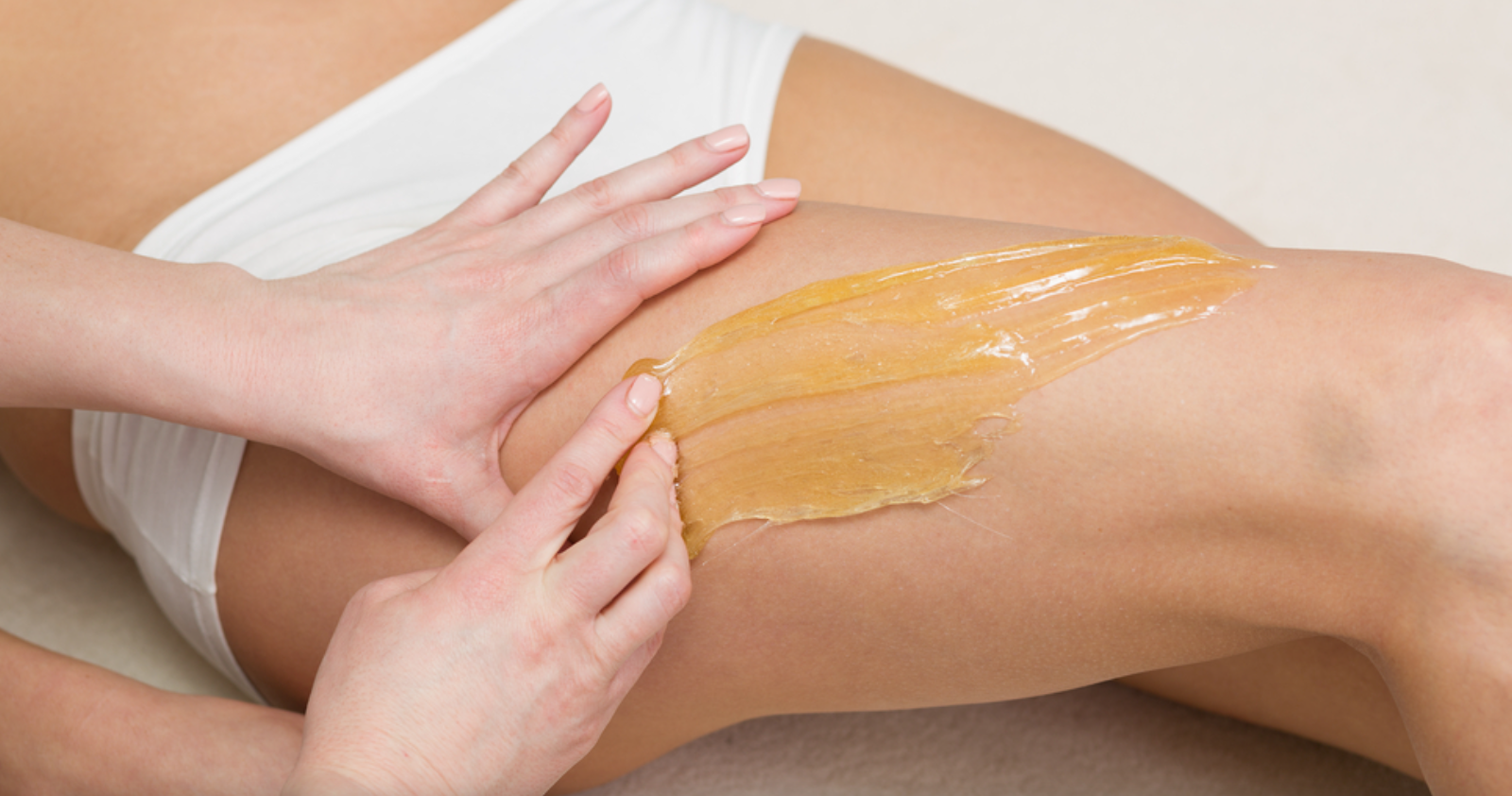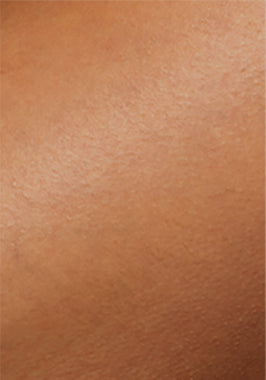Have you recently felt that your skin hurts when touched and even a light touch feels painful? However, there is no visible cause for this pain and no allergies or rashes. So you are wondering why your skin is suddenly more sensitive to touch and how you can deal with it?
Hypersensitivity of the skin to touch can have various causes. Some are autoimmune diseases, weakened immune systems and infections, others are neurological and musculoskeletal disorders.
In this article, we'll talk about the most common causes of sensitive skin and how to treat and prevent them. Here's why your skin is sensitive to touch without getting a rash.
Table of contents:- Part 1: Symptoms of skin sensitivity
- Part 2: Circumstances
- Part 3: All about allodynia
- Part 4: All about hyperalgesia
- Part 5: Products for sensitive skin
- Part 6: Conclusion
Symptoms of skin sensitivity

Skin sensitivity to touch can have the following symptoms:
- Sharp pain that feels like multiple needles are piercing your skin
- Burning pain that feels like your skin has been set on fire and causes burns of varying intensity
- Cutting pain that makes you feel like a sharp piece of glass has passed across your skin
- Itching or stinging without visible rash
These symptoms can be triggered by some foods that are high in fat, just like eczema .
Circumstances that lead to skin sensitivity without a rash
Our body has countless nerve endings that transmit signals from the body to the brain and vice versa. One of the most commonly transmitted signals from the skin to the brain is that of pain.

Sometimes these pain nerve endings are either overstimulated by a light touch or the brain over-perceives the signals and shows an exaggerated reaction. In both cases, the skin becomes overly sensitive to touch without any visible rashes.
The most common diseases that lead to this hypersensitivity are:
- Allodynia
- Hyperalgesia
We will discuss both diseases individually below.
All about allodynia
First, let's talk about allodynia. Allodynia is defined as “ Pain caused by an environmental factor or stimulus that does not normally cause discomfort or pain.”

This definition was further elaborated in an informative article from the National Library of Medicine [1] . In addition, about 15-50% of patients with neuropathic pain also suffer from allodynia or hyperalgesia, as reported in a medical report in the journal “ The Lancet Neurology ” was found [2] .
Causes of allodynia
The causes of allodynia are listed below:
- Fibromyalgia: This is a chronic disease that affects muscles and nerves. Its association with sensitivity has been described in a review by the National Institute of Arthritis and Musculoskeletal and Skin Diseases [3] .
- Peripheral neuropathy: Peripheral neuropathy is a disease of the nerves in the limbs that can lead to hypersensitivity to touch.
- Shingles: It is an infection caused by the varicella zoster virus, which becomes latent in the nerves after treatment of its initial infection, chickenpox.
- Multiple sclerosis: This is a chronic autoimmune disease that causes fibrosis of the nerves in the body and brain.
- Diabetic neuropathy: Diabetes also affects the nerves, leading to a painful condition called diabetic neuropathy.
- Genes: Allodynia can also be caused by abnormalities in genes. PIEZO2 has been shown to be the culprit for the development of tactile allodynia in a clinical trial [4] .
Treatment of allodynia
- Treating the cause: Allodynia rarely occurs without a cause. Therefore, you should make sure to find out the cause with the help of your doctor. Treating the underlying disorder will then significantly reduce the pain.
- Lifestyle changes: Lifestyle changes can help reduce pain and strengthen your body against it. These include healthy eating, adequate hydration and diet.
- Medications: Painkillers such as pregabalin and NSAIDs can reduce pain, as explained in a PubMed Central article [5] . Additionally, topical medications such as lidocaine gel can be useful [6] . And finally, cannabinol extracts are helpful in severe cases of allodynia [7] .
- Physical therapy: Physical therapy works for allodynia by gradually desensitizing your nervous system and enabling it to slowly increase its pain threshold.
- Psychotherapy: It helps to reduce the psychological distress caused by pain. Poor mental health can be a factor that increases pain.
- Device implantation: The implantation of devices that transmit electrical signals to the spinal cord through surgery is used in cases where there is no response.
Prevention of allodynia
It's always better to be safe than sorry, right? That's why you should take the following measures if you feel that your skin is sensitive and may be affected by allodynia.
- Regular check-ups: If allodynia runs in your family, you should have regular check-ups with your doctor and seek treatment as soon as your doctor notices any abnormality in your body's sense of touch.
- Vaccination: Vaccination against viral and bacterial diseases such as varicella zoster and staph aureus reduces the risk of allodynia caused by shingles and other skin infections.
- Exercise and diet: A healthy diet and regular exercise help improve the body's defenses against nerve overstimulation.
- Treating diseases: If you suffer from any of the diseases listed above, treating these diseases may be the best prevention.
All about hyperalgesia
Hyper means “ excessive ” and algesia is “ Pain ”. Hyperalgesia means excessive pain in response to a slight stimulus.

It is a similar disorder to allodynia, but in this condition the pain and discomfort are exaggerated. This means that there is an irritating stimulus. This stimulus may not be as painful to others as it is to you.
Causes of hyperalgesia
The causes of hyperalgesia differ from those of allodynia and are as follows:
- Primary hyperalgesia: Primary hyperalgesia means that the pathology that causes exaggerated pain is at the level of the direct injury to that location. For example, burns that cause contractures, surgeries that cause overstimulation of nerve endings, and trauma.
- Secondary hyperalgesia: In secondary hyperalgesia, the pain is due to a disease process. For example, diabetic neuropathy, advanced cancer, complex pain syndrome, autoimmune diseases such as multiple sclerosis, inflammatory diseases such as lupus and migraines.
- Opioid-induced hyperalgesia: Chronic use of opioid medications such as morphine reduces your natural pain tolerance and makes you dependent. You also develop a tolerance to opioids and need a higher dose of the medication over time to achieve the same effect.
Treatment of hyperalgesia
Hyperalgesia can be treated in two ways.
- Medications: Over-the-counter medications such as acetaminophen, NSAIDs and steroids can help relieve pain. However, medications such as buprenorphine, ketamine, methadone and tramadol are used specifically for hyperalgesia. These medications block the receptors on the nerves and prevent pain transmission.
- Nerve treatment modalities: Other methods work by acting directly on the nerves. These include surgical procedures such as nerve blocks, nerve ablation, and transcutaneous electrical nerve stimulation.
- Attenuating opioid-induced hyperalgesia: The only treatment for OIH is to gradually reduce the dose of opioids and switch to another analgesic, as explained in a PubMed study [8] .
Prevention of hyperalgesia
There is not much you can do to prevent hyperalgesia because its onset is unpredictable. However, you can prevent sunburns, infections, and overuse of opioids.
Products for sensitive skin
If your skin is too sensitive and hurts even when applying skin care or makeup products, we recommend using the mildest and gentlest products with nourishing ingredients. Here are a few such products.

Makeup remover and cleanser
Even though applying and removing makeup can be a little uncomfortable for people who suffer from allodynia, you want to stick to your routine, right? So switch to makeup products that apply to the skin without much effort.
Also, get high-quality makeup removers for sensitive skin to gently remove makeup and cleanse your skin. Here are some of the best removers for every skin type .
Moisturizers
Even if you want to keep your skincare routine simple, moisturizer is a must because the symptoms are worse when the skin is dull and dehydrated. Therefore, light and easily absorbed moisturizers with a thin consistency are good for you.
Sunscreen
Look for a sunscreen that has a thin consistency, a milky texture, and no white cast so that you can apply it easily without rubbing and irritating your skin.
Hair removal products
Hair removal can be difficult because traditional hair removal methods are painful or abrasive. That's why we recommend investing in an IPL device for gentle and long-lasting hair removal.
The best IPL devices for sensitive skin are listed here. The Ulike Air3 is particularly known for its sapphire ice cooling technology. It offers cooling and comfortable hair removal.
Conclusion
Our skin has pain nerve endings, but they are not normally stimulated by mere touch. If your skin feels sensitive and hurts when you touch it, you probably have an underlying condition. Two of these conditions that cause hypersensitivity are allodynia and hyperalgesia.
Allodynia occurs when you feel pain without a corresponding stimulus. However, the brain's response to a stimulus is increased, resulting in hyperalgesia. Both disorders are caused by trauma, surgery, inflammatory diseases, autoimmune diseases, and side effects of medications.
The treatment and prevention of these conditions mainly consists in controlling and treating the disease that causes them. Finally, there are some products that you can use without causing pain.




























